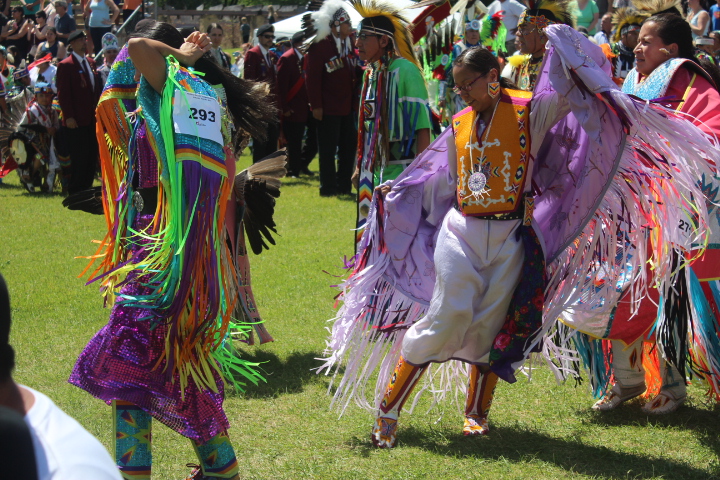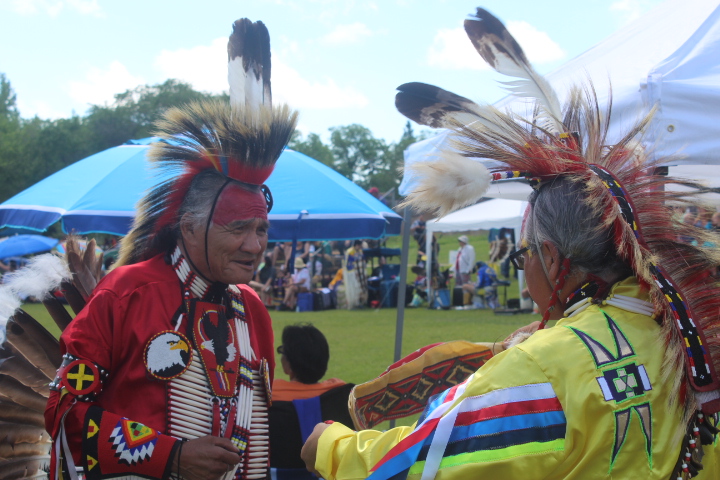Aboriginal Day Live celebrated 10 years of promoting Indigenous culture this past saturday, June 25, 2016 at The Forks.
The event brings Indigenous Canadians of different backgrounds together and gives them a chance to tell their stories, show off their culture and educate people on their languages, lifestyles and history.
For Wamnbdi Wakita - who runs a Dakota language and story-telling workship at Aboriginal Day - the day is about different cultures working together to reconcile.
Wamnbdi Wakita
"I don't know what Aboriginal means, all I know is that I'm Dakota," said Wakita. "It's important for us to keep telling people who we are."
He says Indigenous and non-Indigenous people need to work and live together in harmony to help with reconciliation.
"The sun belongs to everybody, the wind belongs to everybody, the rain, the grass, the trees, they all belong to everybody," he said. "We need to understand that so we can do things together."
Harriet Prince is an elder and sun dancer who took part in yesterday's Powwow.
She was taken from her family when she was four-years-old and put in a residential school, something she says she's still recovering from.
"They used to call us Pagans because of the way our ancestors worshipped and people need to become educated and see that our way of life is very strong," said Prince, adding despite the struggles that continue today, she was able to gain her culture back after leaving residential school. "I was in residential school until I was 17 but I understand my language and I speak it."
Harriet Prince
She says despite her upbringing in a residential school, she is learning to recover in different ways.
"I dance and go to a lot of ceremonies and that's helped me through my healing after being put through residential school by cultural thieves."
Prince says Aboriginal Day Live gives Indigenous people a chance to share their stories and different aspects of their culture with non-Indigenous people as a way to work towards reconciliation.
She also says it's an important celebration for young Indigenous people who want to be involved with their heritage.
"Some of us are having a hard time reconciling but we are getting there slowly," she said. "But my children and my grandchildren are getting there faster and I see a lot of young people at ceremonies and that just makes me so happy."




















